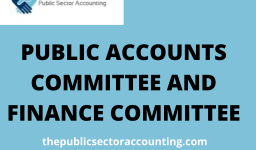Dear Learner, you are welcome to Session 3 or public procurement. We hope by now, you have acquired knowledge of the composition, operation and functions of the public procurement Authority Board. In this session, we extend our discussion on public procurement by looking at the arrangement of the various functions/activities and the responsibilities for executing public procurement in Ghana. We hope you will enjoy this session.
RECOMMEND READING: MEANING OF PUBLIC PROCUREMENT
Objective By the end of this session, you should be able to:
- identify and explain the functions of the various procurement structures used in the public sector of Ghana. Now read on…
PROCUREMENT STRUCTURES – PUBLIC PROCUREMENT ELEMENTS
Declaration of procurement entity Section 15 of Act 914 outlines the process for declaring an entity as a procurement entity. It states that; 15.
1) The Minister in consultation with the Board may, by notice in the Gazette, declare an entity, a subsidiary or agency of an entity or a person to be a procurement entity.
2) Subject to approval by the Board, a procurement entity may undertake procurement in accordance with established commercial practices if
(a) the procurement entity is legally and financially autonomous and operates under commercial law; (b) it is beyond contention that public procurement procedures are not suitable, considering the strategic nature of the procurement; and
(c) the proposed procurement method will ensure value for money, provide competition and transparency to the extent possible.
3) The approval given by the Board to a procurement entity to undertake procurement in accordance with established commercial practices shall be published in the Gazette.
Procurement Entity
16. (1) A procurement entity is responsible for procurement, subject to this Act and any other conditions that may be established in Regulations and administrative instructions issued by the Minister in consultation with the Board. (2) Procurement decisions of an entity shall be taken in a corporate manner and the internal units concerned shall contribute to the decision-making process.
Head of procurement entity
Act 914 identifies the head of a procurement entity in Section 17 and outlines the responsibilities of such a person Section 18. 17.
(1) The head of the entity and an officer to whom responsibility is delegated are responsible and accountable for action taken and for instructions as regards the implementation of this Act.
READ ALSO: PUBLIC PROCUREMENT BOARD
(2) The liability of the head of entity or officer to whom responsibility is delegated is however limited to acts that are inconsistent with this Act.
Functions of the head of a procurement entity
18. (1) The head of entity shall ensure that provisions of this Act are complied with.
(2) The concurrent approval by a tender review committee shall not absolve the head of entity from accountability for a contract that may be determined to have been procured in a manner that is inconsistent with a provision of this Act.
(3) The head of entity shall
(a) establish within the procurement entity, a procurement unit, staffed with qualified procurement personnel;
(b) empanel competent and qualified evaluation panels;
(c) ensure that at each stage of the procurement activity, procedures prescribed in this Act have been followed;
(d) ensure that stores, vehicles and equipment are disposed of in compliance with this Act;
(e) exercise sound judgment in making procurement decisions; and
(f) refer to the entity tender committee for approval, a procurement above the approval threshold of the head of entity.
(4) The head of entity shall
(a) apply the thresholds that relate to heads of entities as specified in the Second and Third Schedules to this Act; and
(b) facilitate contract administration and ensure compliance with the reporting requirements under this Act.
Procurement Unit
Each public sector entity must have a procurement unit that is headed by a qualified person.
- (1) The head of a procurement entity of each ministry, department and agency and Metropolitan, Municipal and District Assembly, shall establish a procurement unit within the entity which shall be headed and staffed by qualified procurement personnel. (
2) The head of a procurement entity shall appoint a head of procurement of the procurement entity who shall be the Secretary to the entity tender committee
Entity Tender Committee
Tender Committee means the body within an entity with responsibility for planning, processing, and generally taking procurement decisions and ensuring compliance with the public’ procurement law, among others.
Section 20 of the Act makes it mandatory for all procurement entities to establish entity tender committee. Generally, an entity tender committee is a committee set up in an organization to ensure that procurements are done in a fair, efficient and cost-effective manner and according to due process.
The committee ensures that contracts are properly advertised, qualified bids are invited, the selection process of suppliers is transparent and fair and appropriate regulations are duly followed.
Act 914 specifies the composition of entity tender committees according to the categories that each public entity belongs.
The first schedule of the Act groups the entities into six categories, as shown in Table 5.1 below. Also, persons who are supposed to be members of every entity is specified in Schedule 1B of Act 914.
For illustration, the composition of the entity tender committees of Categories A and F entities have been reproduced in Table 5.2A and 5.2B.
CATEGORY A (SPECIAL CONSTITUTIONAL BODIES)
- Legislature
- Judiciary
- Council of State
- Bank of Ghana
CATEGORY B
- Independent Constitutional Bodies1
- Office of the President
- Ministries
- State-Owned Enterprises
- Regional Coordinating Councils
- Statutory fund management bodies
CATEGORY C
- Head Office of subvented agencies and government departments 2
- Teaching Hospitals
- Tertiary Institutions including autonomous schools, institutes, colleges and campuses of universities
CATEGORY D
- The regional office of subvented agencies and government departments
- Specialist hospitals, regional Health Directorate, Municipal Hospitals, Regional hospitals
- Colleges and Training Institutions 3
CATEGORY E
- District office of subvented agencies and government departments4
- District health directorate, District hospitals, Hospitals, polyclinics, Health centres.
- Second cycle schools or institutions
CATEGORY F
- Metropolitan Assemblies
- Municipal Assemblies and District Assemblies
Thresholds for Entity Tender Committees
These are maximum amounts of goods, works and services that entities have the power to supervise their acquisition. Any amount going beyond the threshold of approving authorities must be sanctioned by the authority that has the approving power.
For instance, if a tertiary institution like the University of Cape Coast which belongs to category C of entity tender committees (ETC) wants to buy any goods which are up to GHS60,000, the entity head (like the Vice-Chancellor) can approve of the purchase without recourse to the ETC or central tender review committee (CTRC).
1As regards regional officers of a subvented agency, procurement above the regional entity tender committee threshold shall be handled by their head office entity tender committee (ETC). 2District hospitals and schools shall use the entity tender committees and central tender review committees (CTRC) as appropriate for procurements above the ETC’s threshold. The district offices of a subvented agency shall operate under the threshold guidelines of their head office agency.
General Provisions on the Functions of an Entity Tender Committee
20A.
(1) An entity tender committee shall
(a) ensure that at each stage of procurement activity, procedures prescribed in this Act have been followed;
(b) work within the threshold limits specified in the Second Schedule and the method thresholds specified in the Fifth Schedule;
(c) exercise sound judgment in making procurement decisions; and
- d) review and refer to the central tender review committee for concurrent approval, procurement above the entity tender committee’s threshold, that has been duly
(i) processed by the procurement unit: and
(ii) evaluated by the appropriate evaluation panel constituted by the head of entity.
(2) The chairpersons and members of an entity tender committee and a tender review committee may delegate their functions in writing.
Functions of Specific Entity Tender Committees
20B. (1) An entity tender committee of a central management agency, ministry, department and subvented agency shall
(a) review and approve annual procurement plans and quarterly updates of procurement plans in order to ensure that they support the objectives and operations of the entity;
(b) confirm the range of acceptable costs of items to be procured and match these with the available funds in the approved budget of the entity;
(c) review the schedules of procurement and specifications and ensure that the procurement procedures to be followed are in strict conformity with the provisions of this Act, the Regulations and guidelines made under this Act;
(d) ensure that the necessary concurrent approval is obtained from the appropriate tender review committee where applicable, as specified in the Second Schedule;
(e) facilitate contract administration and ensure compliance with reporting requirements under this Act; and (f) assist the head of entity to ensure that stores, vehicles and equipment are disposed of in accordance with this Act.
(2) An entity tender committee of a Regional Coordinating Council shall
(a) review procurement plans in order to ensure that they support the policies and programmes of the Regional Administration, Metropolitan, Municipal or District Assembly;
(b) confirm the range of acceptable costs of items to be procured and match these with the available funds in the approved budget of the Regional Administration, Metropolitan, Municipal Assembly or District Assembly;
(c) review the schedules of procurement and specifications and ensure that the procurement procedures to be followed are in strict conformity with the provisions of this Act, its Regulations and guidelines;
(d) ensure that the necessary concurrent approval is obtained from the appropriate tender review committee where applicable, as specified in the Third Schedule;
(e) facilitate contract administration and ensure compliance with reporting requirements under this Act; and (f) assist the head of entity to ensure that stores, vehicles and equipment are disposed of in compliance with this Act.
(3) An entity tender committee of a Metropolitan, Municipal or District Assembly shall
(a) review and approve annual procurement plans and quarterly updates of procurement plans in order to ensure that they support the policies and programmes of the Assembly;
(b) confirm the range of acceptable costs of items to be procured and match these with the available funds in the approved budget of the Assembly.
(c) review the schedules of procurement and specifications and ensure that the procurement procedures to be followed are in strict conformity with the provisions of this Act, the Regulations and guidelines made under this Act;
(d) ensure that the necessary concurrent approval is obtained from the appropriate tender review committee where applicable, as specified in the Third Schedule;
(e) facilitate contract administration and ensure compliance with reporting requirements under this Act; and
(f) assist the head of entity to ensure that stores, vehicles and equipment are disposed of in compliance with this Act.
Tender review committees
All MDAs and MMDAs shall have tender review committees. While the TRC of the MDAs is the central tender review committee with its members appointed by the Finance Minister in consultation with the board, the TRC of the MMDAs is the regional tender review committee with its members appointed by the regional Minister in consultation with the Finance Minister.
Functions of a Tender Review Committee
Section 20F
(6) states that the central tender review committee, the regional tender review committee and each entity tender committee shall perform the functions of the tender review committee for the entities for which they are responsible.
(7) A tender review committee shall perform the following functions:
(a) review the activities at each step of the procurement cycle leading to the selection of the lowest evaluated bid or best offer by the procurement entity in relation to the particular procurement under consideration, in order to ensure compliance with this Act, its operating instructions and guidelines;
(b) give concurrent approval or otherwise to enable the procurement entity to continue with the procurement process subject to subsection
(1) of section (16);
(c) participate in public procurement fora; and
(d) review decisions of heads of entities in respect of a complaint.
(8) The regional tender review committee shall furnish the Board, Metropolitan, Municipal and District Assembly with reports pertaining to the regional tender review committee’s operations in the prescribed format.
(9) A tender review committee may engage the services of consultants and advisers or co-opt persons with the specialised expertise that it may require for the proper and efficient performance of its functions.
Review of Tender Review Committee Decisions
20G. (1) A procurement entity or tenderer aggrieved by the decision of a tender review committee may apply to the Board for the review of the decision of that tender review committee.
(2) The Board shall take appropriate action and determine the grievance in accordance with section 80(3) or as it considers appropriate.
(3) A tenderer or procurement entity that is dissatisfied with a decision of the Board may seek redress in court.
CONCLUSION
In this session, we have learnt about the declaration of procurement entity, the establishment of procurement units within public sector entities, the functions of the entity head, entity tender committee, tender review committees as well as the procurement thresholds of the various procurement structures





Leave a comment